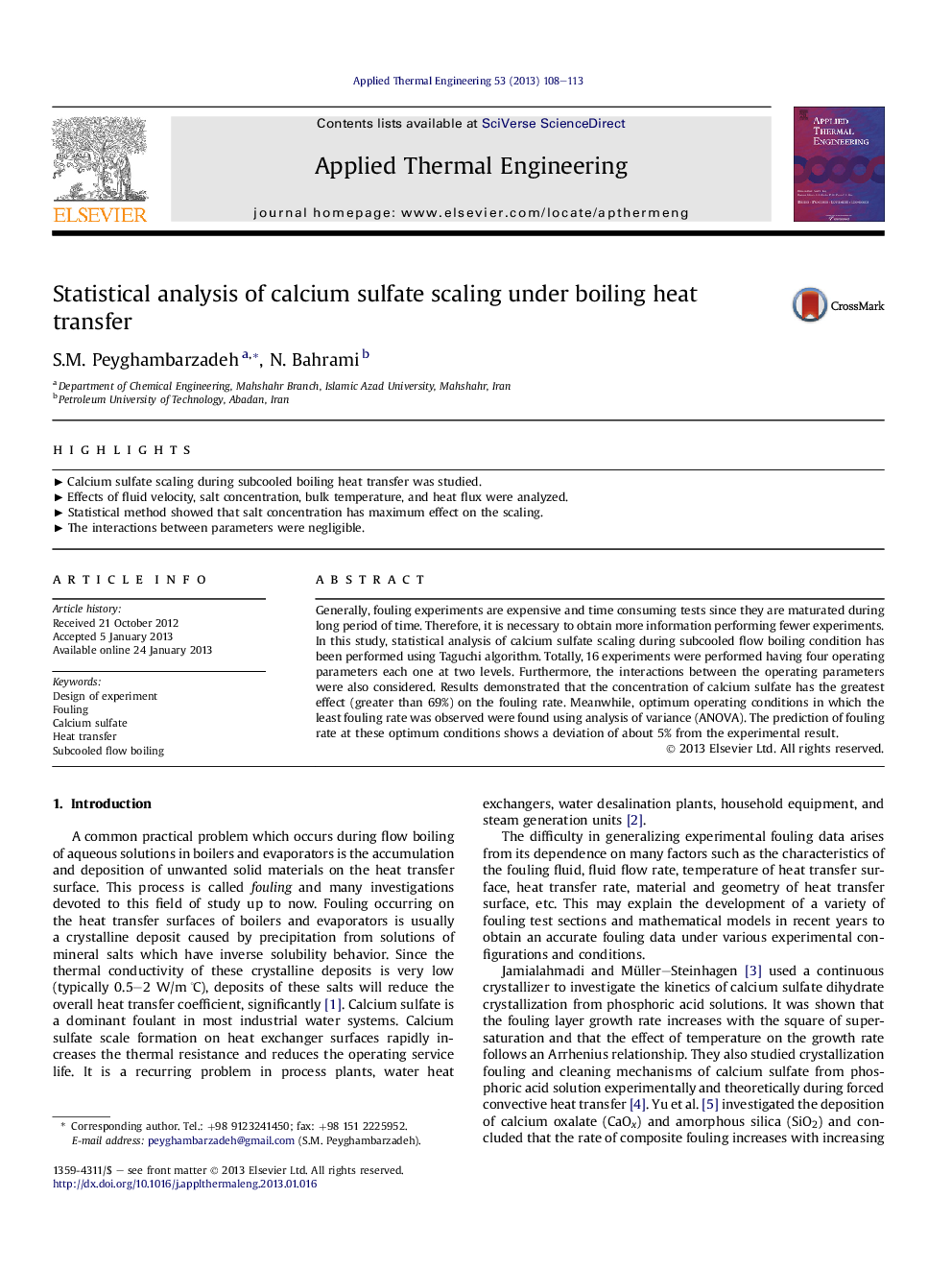| Article ID | Journal | Published Year | Pages | File Type |
|---|---|---|---|---|
| 646928 | Applied Thermal Engineering | 2013 | 6 Pages |
Generally, fouling experiments are expensive and time consuming tests since they are maturated during long period of time. Therefore, it is necessary to obtain more information performing fewer experiments. In this study, statistical analysis of calcium sulfate scaling during subcooled flow boiling condition has been performed using Taguchi algorithm. Totally, 16 experiments were performed having four operating parameters each one at two levels. Furthermore, the interactions between the operating parameters were also considered. Results demonstrated that the concentration of calcium sulfate has the greatest effect (greater than 69%) on the fouling rate. Meanwhile, optimum operating conditions in which the least fouling rate was observed were found using analysis of variance (ANOVA). The prediction of fouling rate at these optimum conditions shows a deviation of about 5% from the experimental result.
► Calcium sulfate scaling during subcooled boiling heat transfer was studied. ► Effects of fluid velocity, salt concentration, bulk temperature, and heat flux were analyzed. ► Statistical method showed that salt concentration has maximum effect on the scaling. ► The interactions between parameters were negligible.
